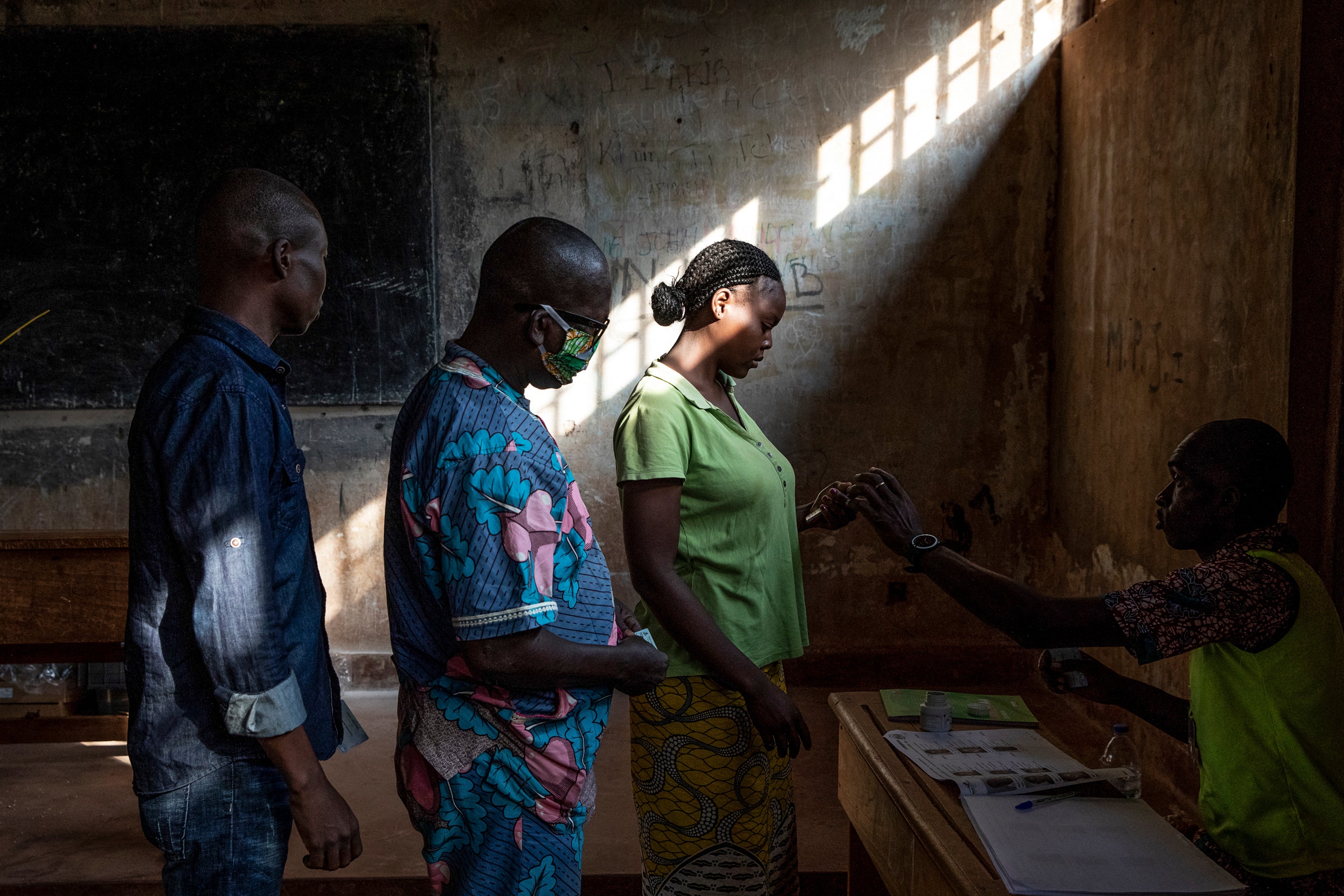Polls open in Central African Republic amid fears of unrest
Voting has begun in Central African Republic’s presidential and legislative elections after a campaign period marked by violence between rebels and government forces

Your support helps us to tell the story
From reproductive rights to climate change to Big Tech, The Independent is on the ground when the story is developing. Whether it's investigating the financials of Elon Musk's pro-Trump PAC or producing our latest documentary, 'The A Word', which shines a light on the American women fighting for reproductive rights, we know how important it is to parse out the facts from the messaging.
At such a critical moment in US history, we need reporters on the ground. Your donation allows us to keep sending journalists to speak to both sides of the story.
The Independent is trusted by Americans across the entire political spectrum. And unlike many other quality news outlets, we choose not to lock Americans out of our reporting and analysis with paywalls. We believe quality journalism should be available to everyone, paid for by those who can afford it.
Your support makes all the difference.Voting has begun in Central African Republic's presidential and legislative elections after a campaign period marked by violence between rebels and government forces.
Despite calls from the opposition to delay the vote amid the insecurity, the Constitutional Court rejected a postponement.
President Faustin-Archange Touadera, seeking a second term, has tried to reassure candidates and voters that the voting will be secure. This is the central African country's first election since a peace deal was signed between the government and 14 rebel groups in February 2019, although fighting continues.
Three peacekeepers from Burundi were killed and two others wounded Friday by armed combatants. The U.N. Secretary-General Antonio Guterres condemned the attacks in the Dekoua and Bakouma areas ahead of the elections, calling for swift justice and saying they may constitute war crimes.
The U.N. retook the town of Bambari last week from rebels. Rebel groups have also seized several towns near the capital, Bangui
Voters went to the polls in the capital Sunday, though others had fled the violence over the holiday weekend.
Many residents of the town of Bangassou in the nation’s southeast were fleeing because of the fighting, residents said.
“I am in the town of Bangassou but my wife and children crossed to the other side of the bank towards Congo because of the violence,” said Christian Kombro a teacher from the town.
The government blames the unrest on former President Francois Bozize, who returned from exile a year ago and has been blocked from running in the election. He has been accused of joining up with armed groups to destabilize the country and launch a coup. He has denied it.
Rwanda and Russia have each sent hundreds of troops to the country to support the government.
Sixteen candidates are running for president, including three women. More than 1,500 candidates are running for 140 seats in the national assembly. More than 1.86 million voters are registered, but more than 598,000 refugees in neighboring countries will not be able to vote, according to the U.N.
Parties in the Democratic Opposition Coalition known as COD-2020 last week said seven of its candidates pulled out of the election, citing the violence. The parties had wanted the vote to be delayed, alleging poor preparations and an electoral body influenced by the president.
Experts warn of a strong chance of further violence if the opposition doesn’t accept the election results. “A contested outcome may lead to a post-electoral crisis that armed groups could use to further weaken the state,” the International Crisis Group noted.
The mineral-rich Central African Republic has faced deadly inter-religious and inter-communal fighting since 2013, when predominantly Muslim Seleka rebels seized power from Bozize after long claiming marginalization. Resistance to Seleka rule eventually led to Muslims being targeted en masse, with some beaten to death, mosques destroyed and tens of thousands forced from the capital in 2014.
Despite a 2019 peace agreement between the government and 14 rebel groups, intermittent violence and human rights abuses have continued.
The most recent insecurity began after the Constitutional Court rejected the candidacy of Bozize, on the grounds that he did not satisfy the “good morality” requirement.
Bozize, who took power in a coup in 2003 and ruled until 2013, faces an international arrest warrant for “crimes against humanity and incitement of genocide.” He also faces U.N. sanctions for his alleged role in supporting the anti-Balaka groups that resisted the Seleka in 2013.